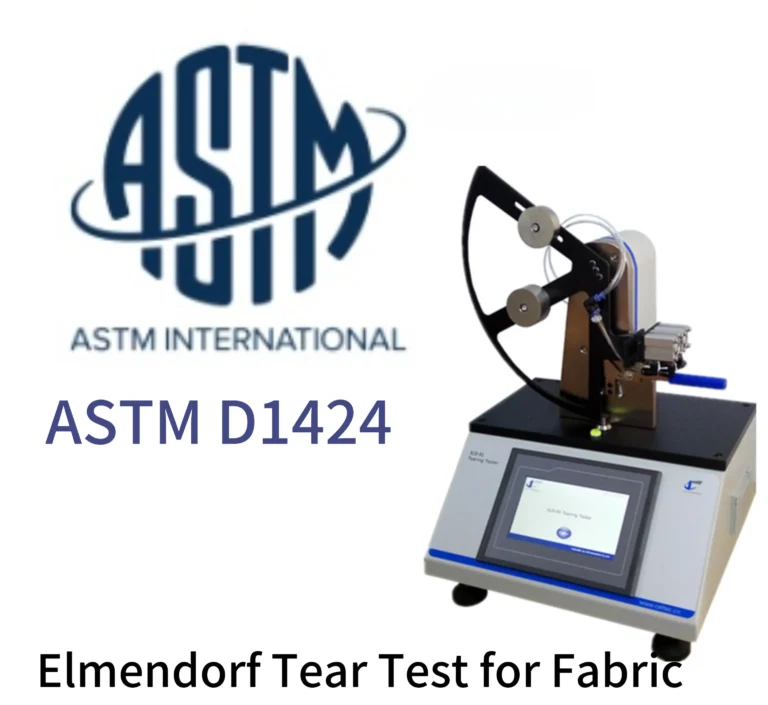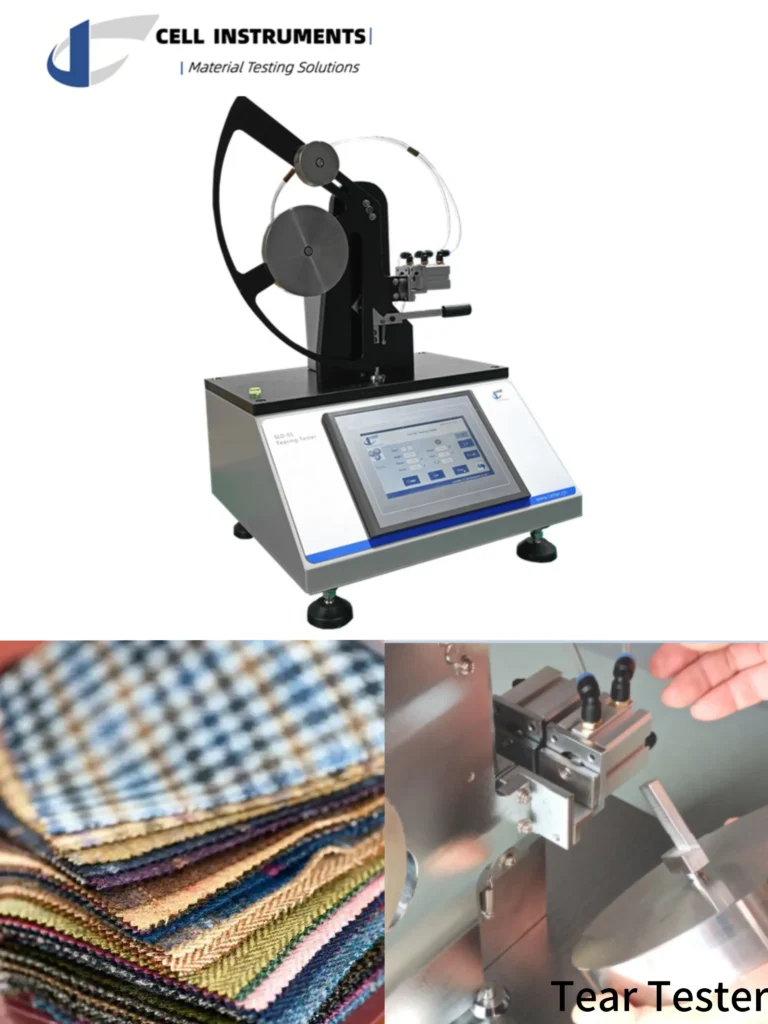
ASTM D1424
Elmendorf Tear Test for Fabric
For professionals in textiles, packaging, and materials testing, determining the tear strength of fabric is crucial for ensuring product performance and quality. The ASTM D1424 test method—commonly known as the Elmendorf tear test—offers a reliable and standardized way to evaluate how resistant a fabric is to tearing after a cut has been introduced. This article explores the test’s methodology, relevance, and how to effectively conduct a fabric tear strength test using a professional Elmendorf tear tester such as Cell Instruments’ SLD-01 Tear Tester.
Introduction
The ASTM D1424 test method evaluates the tear resistance fabric by measuring the force required to propagate a tear in a pre-cut textile specimen using a falling pendulum mechanism. This procedure is designed for woven fabrics, blankets, coated fabrics, airbag textiles, and more, whether untreated or treated with coatings and resins.
The test simulates real-world stress conditions where a fabric might begin tearing and continues to do so under external force. It specifically evaluates resistance in the machine direction (MD) or cross-machine direction (CD), offering a quantified value of tear strength of fabric critical for product development and quality control.
Why Is It So Important
In industries such as medical textiles, automotive, protective clothing, and packaging, tear and tensile strength of fabric are primary indicators of durability and functional reliability. A fabric with poor tear resistance can fail under minimal mechanical stress, leading to safety risks or product damage.
Therefore, a standardized fabric tear strength test method helps manufacturers and quality professionals make informed decisions about material selection, process improvements, and compliance with industry standards.
How the Elmendorf Tear Test Works
The SLD-01 from Cell Instruments, uses a calibrated pendulum to apply force to a pre-cut specimen. Here’s a simplified breakdown of the procedure according to ASTM standard:
-
Condition the fabric in a standard testing atmosphere (21 ± 1°C and 65 ± 2% RH).
-
Secure the specimen between two clamps.
-
Pre-cut a 20 mm slit in the specimen using a precision blade.
-
Release the pendulum; it swings through the slit, tearing the fabric.
-
The instrument captures the tearing force based on pendulum displacement and weight.
This method allows the measurement of tearing strength of fabric by Elmendorf tearing tester with high repeatability.
Common Applications and Standards
The tearing test of fabric per ASTM D1424 is widely used in:
-
Textile manufacturing: for quality control of woven fabrics
-
Medical and hygiene products: where controlled tearing prevents hazardous failure
-
Protective apparel: requiring enhanced tear resistance fabric
-
Consumer packaging: to ensure opening and handling performance
Other standards related to fabric tear testing include ISO 1974 and BS EN 21974, but ASTM D1424 remains the global benchmark for Elmendorf-based methods.
Recommended Equipment

To perform a compliant and efficient tear strength test of fabric, using a high-precision tester is essential. The SLD-01 Elmendorf tear tester from Cell Instruments is engineered specifically for ASTM D1424 applications and offers:
-
Multiple pendulum capacities: 200 gf to 6400 gf
-
Adjustable tearing angle and arm length for accurate energy transfer
-
Stable pneumatic clamping to prevent slippage
-
Optional software for data analysis and digital reporting
This equipment ensures accurate, repeatable, and standard-conforming results in lab or production settings. It is especially beneficial for quality inspection agencies and R&D labs focused on fabric tear strength standard compliance.
Conclusion
The ASTM D1424 Elmendorf tear test is an indispensable tool for assessing the tear strength of fabric, especially in demanding industries where durability matters. By understanding and implementing this standardized fabric tear strength test method, manufacturers and quality professionals can improve product performance and ensure compliance with international standards. For accurate and reliable results, the SLD-01 fabric tear tester from Cell Instruments offers a robust, user-friendly solution tailored to modern testing needs.
